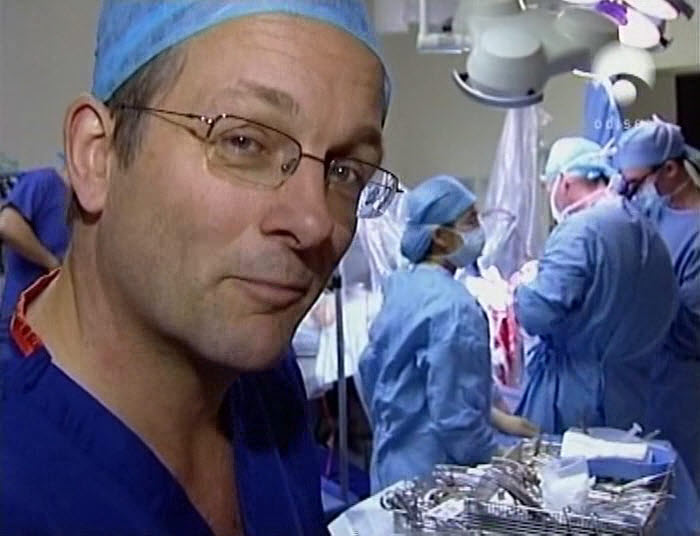
Not for the faint of heart. For all the want-to-be surgeons in the world or those who love gore, then the first input into the aptly named “Blood and Guts” documentary series is definitely for you. This series focuses on different aspects of surgical procedures, giving both the history and some medical insight into modern surgery. For part one of the BBC Channels history of surgery, the focus is on the brain. Michael Mosley does a fantastic job of introducing the topic at hand, making the documentary seem very appealing, drawing you right in. The way the whole show is neatly summarised at the beginning gives the viewer time to get into the certain mindset required for the show. As said earlier, this is not for the faint of heart and this is not an understatement.
Michael Mosley starts the show in a live brain surgery. A woman is having a tumour removed from the deep areas of the brain. What makes this a stunning procedure is that only local anaesthetic is used- she is fully conscious throughout the surgery. The viewer is shown the skull being removed with a saw, which to the average person is very grotesque. This is a very rare experience- to see a live surgery- most often it is hard to enter the viewing area and even harder to get a camera in. The shots of the actual surgery are fantastic and the whole experience is shown with no detail being missed.
After this the history of how modern surgery developed is shown, which helps start the documentary at full pace. The documentary uses the full advantage of modern technology, using historic clips, old pictures, digital images and re-enactments. These sections are just as gory as the surgeries shown earlier. The medical examples are very interesting and do a very good job of building emotion. These stories will not be easily forgotten and will allow the viewer to remember concepts very easy.
There is a focus throughout the documentary about how the past relates to the future. Many of the examples shown, such as the development of the lobotomy, show how advanced modern surgery is. Lobotomies are a form of surgery where an ice pick is shoved into the brain (through the eye cavity if it is transorbital) and swivelled around. This is done to change behavioural aspects of the patient. One can definitely be thankful for living in the era we live in after this show. Another amazing thing about this documentary is the fact that medical terms become easy to digest. Along with the strong stories to relate to each concept, the everyday descriptions and visual images allow very difficult terminology to become easy to understand.
The editing throughout the documentary is very well done. Shots are cut in such an order to give maximum emotional effect. There is good variety of b-roll, re-enactments and interviews to make the documentary never seem stagnant in one spot.
The documentary ends with the successful surgery of the patient shown at the beginning of the documentary. The surgery goes as planned and shows how effective modern brain surgery is compared to what it used to be like. This is not the most effective example, however. A patient with Parkinson is treated with an electrode implant into his brain to disrupt certain signals and stop motor skill degradation. He is shown after his surgery. The implant almost makes the patient seem to be robotic-like. It makes one wonder how far surgery should go, before it becomes almost unnatural.
This documentary shows that there are successes and failures to all surgeries, but luckily the era we are in has many more successes. The show makes good use of editing techniques taking the viewer for an emotional rollercoaster, while giving difficult medical terminology and concepts in an easy-to-digest manner. The exposure to mass amounts of gore allows the prospective surgeon to build their stomach tolerance up. For those who have an interest in the subject of surgery, this is the perfect documentary for them. Documentaries like these should be readily available to future surgeons or students thinking about getting into the field. It allows them to know if the profession is for them, letting them not to go into a profession they have little knowledge of. This documentary is great, but not for the everyday person, however, if surgery is something you like, then definitely check it out.

No comments:
Post a Comment